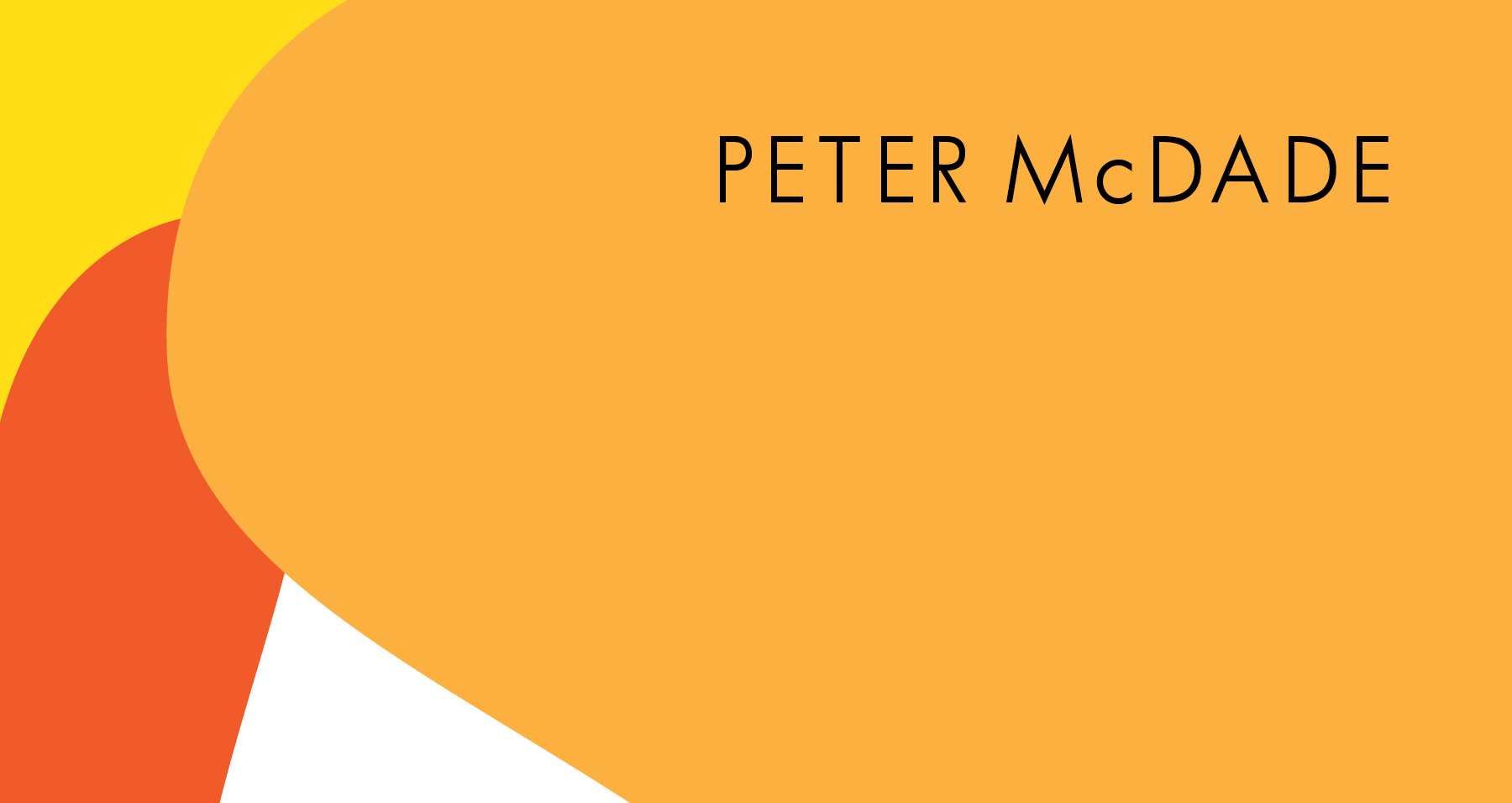‘Brautigan Library’: 5 Questions about Modern Fiction with Peter McDade

Wampus discussed the state of the art (and business) of modern fiction with novelist and musician Peter McDade.
—
[Wampus]: It’s said the amount of fiction being published is greater than ever, but the amount of transcendent material coming out is the same as it ever was. Do you think the higher volume of fiction competing in the marketplace is a good or a bad thing? Why?
[Peter McDade]: When I was in my late teens I went through a big Richard Brautigan phase. I’m not sure how well those books would hold up today, but at the time they were perfect, in the same way, say, Vonnegut is perfect at that age.

One of his novels is called The Abortion: An Historical Romance 1966. The narrator works at this library that takes books written by anyone—little kids who have these crayon creations, shy people who drop their books and run. One book “smelled like eggs and bacon.” At the time I liked the idea that everyone had at least one book worthy of being in one library, somewhere; I’d been writing stories and bad poems since I was ten, and wondering what the hell it would all add up to.
And maybe that’s the world we’re living in. There’s certainly more volume than there used to be, but I’m not sure that’s a bad thing. Maybe my reaction is partly driven by understanding that there is nothing to be done about the situation, but I also have this faith that eventually books find their way to readers. Certainly some (many?) books never reach as many readers as they deserve, but I’m not sure that’s a situation that’s gotten much worse over time. I’m also not sure there’s any way to measure just what percentage of books are transcendent. I mean, we’d probably have to have a whole sidebar discussion about what makes a book transcendent. How many books have we had disagreements over? I, for one, have never found The Great Gatsby transcendent, and tend to read the book as primarily about a closeted narrator who pines for his wealthy, egocentric friend.
Maybe I’m in the mood to say “the more the merrier” because I have a book coming out myself, but as I sit here I see the flurry of novels being released as a modern-day Brautigan library. For better or worse, that book that smells like eggs and bacon is out there, waiting for someone.
[Wampus]: Is the public better served by a model in which a continual flood of books hits the market, or one in which publishers act as “gatekeepers”? Is the literary world prospering or suffering at the hands of a system that provides little critical context for new works?
[Peter McDade]: It’s a weird thing, to put a price on an artistic creation, right? There’s also no way around it, because people like to have their works seen, and they also like money. And that’s what brings us to a “system,” which I think is the perfect word choice here, because it’s the money factor that winds up creating the most powerful gatekeepers. I was in a band that had work released by two of the more powerful gatekeepers in the music industry, and having seen a little of the inner workings at those places, I can assure you that they don’t really have much of an idea of what they’re doing, most of the time.
That said, there is a role for publishers to help direct the floodwaters. Instead of relying on a smaller group of more powerful gatekeepers, though, I’d love to see a world of smaller publishers help provide a little focus for potential readers—like an imprint that tends to deal in literary fiction, one that deals with memoirs, one that is known for cool books about buildings. It is nice to pick up a book from a press you recognize, knowing that anything that received that stamp had been read and approved by people whose opinions you trusted.
[Wampus]: Regarding critics, Kurt Vonnegut said, “Any reviewer who expresses rage and loathing for a novel is preposterous. He or she is like a person who has put on full armor and attacked a hot fudge sundae.” How do you view the state of literary criticism in 2021?
[Peter McDade]: I confess to never having heard that quote before, and I love the image. I have also attacked some hot fudge sundaes in my life, albeit never in full armor.
Literary criticism has benefitted/suffered from the same ease of production as literature itself. That is, we now live in an age where anyone can set up a website and call themselves a critic. There are people who throw up blogs talking about books, people who drop Goodreads reviews multiple times a day, people recording podcasts with their neighborhood book clubs, and it’s not like anyone can stop them. I guess the reader has the same job when dealing with the huge number of books coming out: wading through and finding reviewers that speak to them, voices they can trust.
And I’m going to go ahead and give a shout-out to independent bookstores here. Maybe that’s where the best reviews can be found, albeit in spoken, not written form? I got to visit more than a dozen on my book tour, and I loved how each store had its own section of staff recommendations, and different titles selected for those high-visibility spots. Maybe one of the reasons these stores have survived the Amazonian Onslaught is that they can serve as local, in-person book critics.
[Wampus]: Genre fiction is becoming increasingly popular. Your debut novel, The Weight of Sound (2017), explored the world of music and musicians. Do you see your work as part of a “musical fiction” genre? If so, what are some of your touchstones in that genre?
[Peter McDade]: In general, my favorite examples of genre fiction may have one foot in a particular genre, but keep the other foot firmly in the land of Developed Characters. The mysteries of Kate Atkinson, for example, work only because the mystery plot is only satisfying because the characters involved feel so real and genuine. I finally read my first John le Carré, and it was the same thing—the intricacies of the spy world were fine enough, but it was the tragedy of the man called for one last doomed mission that kept me so engaged.
 I’ve never thought of “musical fiction” as a genre, but if it is, I would happily put my two novels in there. The Weight of Sound is a more obvious fit, but even though my forthcoming novel, Songs by Honeybird, is not set in the world of musicians, it is filled with characters who use music as a way to understand the world.
I’ve never thought of “musical fiction” as a genre, but if it is, I would happily put my two novels in there. The Weight of Sound is a more obvious fit, but even though my forthcoming novel, Songs by Honeybird, is not set in the world of musicians, it is filled with characters who use music as a way to understand the world.
And if that is the definition of the musical fiction I have settled on, I think that Nick Hornby is one of my touchstones. I remember reading High Fidelity and being excited to think that a book could be built around the kind of music geeks that I knew and loved. Jennifer Egan doesn’t return to music as often as Hornby, but A Visit from the Goon Squad may be my favorite example of a book with music at its center.
[Wampus]: Do you see your novels as discrete works or as sequential entries in an unfolding larger story? Are you writing a single book at a time, in other words, or creating an extended narrative that ultimately could comprise many novels?
[Peter McDade]: I write them as discrete works, but am now seeing how they might be creating an extended narrative. I’ve just started laying down a few large beams for the next novel, and while it’s too early to talk in too much detail about it—primarily because I’m a long way away from figuring out what it will actually be—the new book also has a musician playing a key role, and Atlanta is a key part of the location. Maybe these first three will form some sort of “Atlanta Trilogy”? It also seems likely that other themes will keep returning. What it means to be a father, for example, and the importance of friendship, are two that have worked their way into both books. “More Books about Music and Friends”?
Or maybe, to return again to music, I’d like to think of my books as being of a piece in the same way albums are. There will always be variations (Electric Neil Young or Acoustic Neil?), but there are also some through lines that tie the records together. Even when Joni Mitchell moved from Court and Spark to The Hissing of Summer Lawns, it was still Joni.
OK, I’m not Joni Mitchell or Neil Young. But there’s no shame in setting your sights high, yes?
—
Peter McDade writes novels, teaches history, and plays the drums. After a childhood in New Jersey and years of touring the country with rock band Uncle Green, he has settled happily into domestic life in Atlanta. His debut novel, The Weight of Sound, was published by Wampus in 2017. His second novel, Songs by Honeybird, will be published by Wampus on March 29, 2022.

Leave a Reply